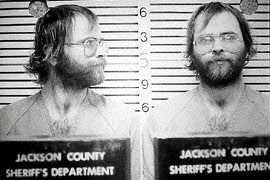Sick: The Life and Death of Bob Flanagan, Supermasochist (1997)
As the title implies, this movie is not for everyone. That is unless everyone likes to see supermasochists drive nails through their penises, have balls inserted in...tight places, and veritably watch a man die through a series of gut wrenching photographs. But in all reality, the S&M aspect is only part of the story that Bob explains and elucidates in the most fascinating and blunt ways. Sick is about an artist/performer/masochist named Bob Flanagan who also happens to be struggling through the last years of Cystic Fibrosis. His body is emaciated, he's always on oxygen, and is constantly coughing up phlegm, but he is still completely devoted to being pierced, strangled, cut, whipped, burned, slapped, pinched, and all the lovely pain(and to him, erection)-inducing tropes of masochism. The following song is Bob Flanagan in a nutshell. He's able to have a sense of humor about who he is and his mortality.
Bob's lascivious and exhibitionist lifestyle is captured in video of public readings of his "Fuck Journal", a daily diary his loving dungeon master Sheree has assigned to him. He reads aloud intimate details of their sex life to a small S&M audience. Sheree doesn't mind, in fact she encourages his exhibitionist lifestyle by documenting and then displaying various crude sex acts. They're both performance artists. Bob had a show at the Santa Monica Museum of Art where he laid in a hospital bed in the middle of gallery only to be hung by his feet, nude, from the ceiling with Sheree manning the rope and pulley. His artistic style is very confrontational and grotesque.
Throughout the film we are constantly aware and reminded of Bob's impending death and that he likes to do rediculous things to his wang, but at some point 3/4 of the way through I was really sick of the"I'm gonna die, chuckle chuckle" and the ironic "isn't it funny how much my body hurts me and how much I hurt my body". He just got a little redundant after a while.
In the end, all the jokes, songs, and performances seemed to be moot forms of expression with what was actually happening to Bob. The penultimate videos are painfully serious as he talks to Sheree about the pain he's feeling and how he can't psychologically submit to her. The last videos are of Bob completely incoherent in the hospital, gasping like a fish out of water, eyes unfocused and blank. Sheree comes to visit and tries to console him. It then cuts to a series of photographs (taken by Sheree) of Bob's nude body splayed out on a hospital bed. He's not moving. We are affirmed in our assumptions when the next picture is a lumpy white sheet and then an empty bed. Sheree's documentation almost seems inappropriate, but at the same time befitting of their life together. Sick is wonderfully funny, sad, and at times really disgusting, but definitely worth every dry heave.
4.75 out of 5 rubber fists






